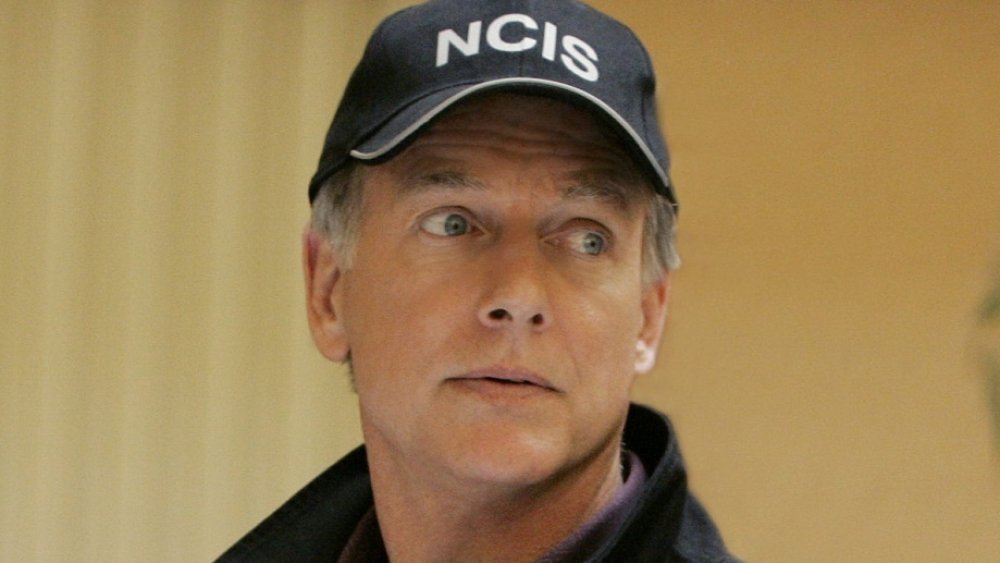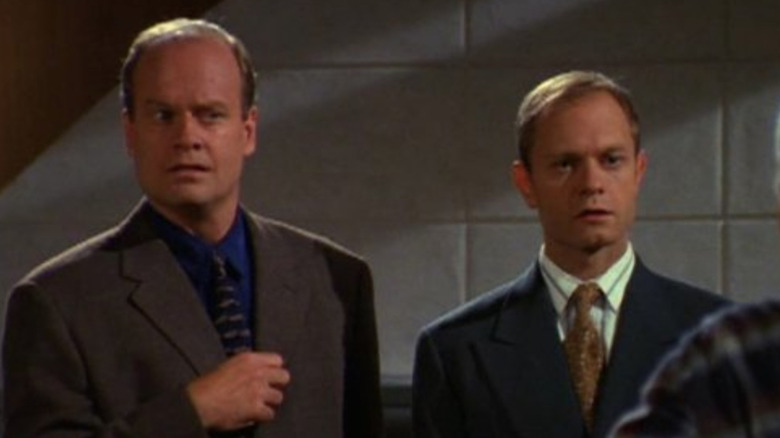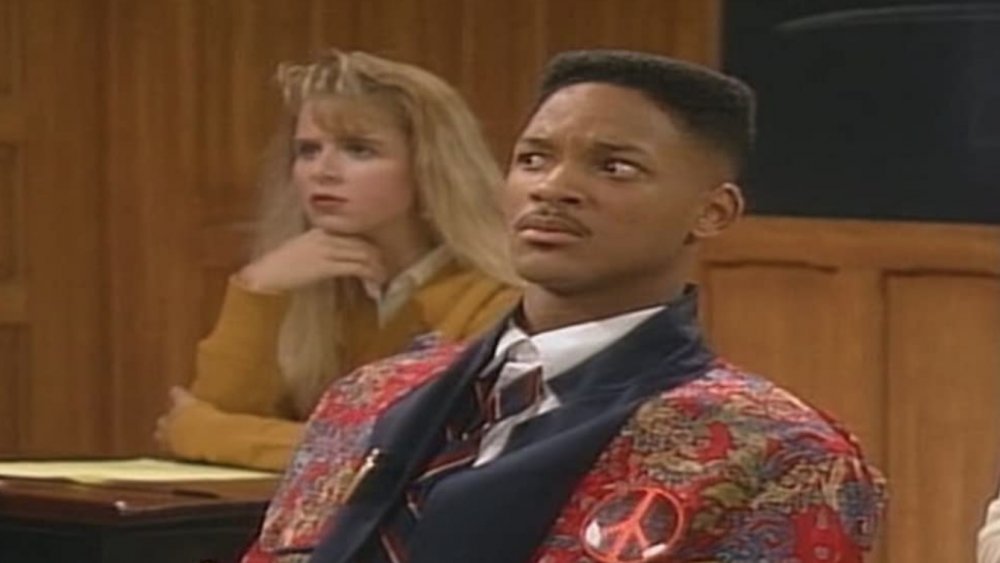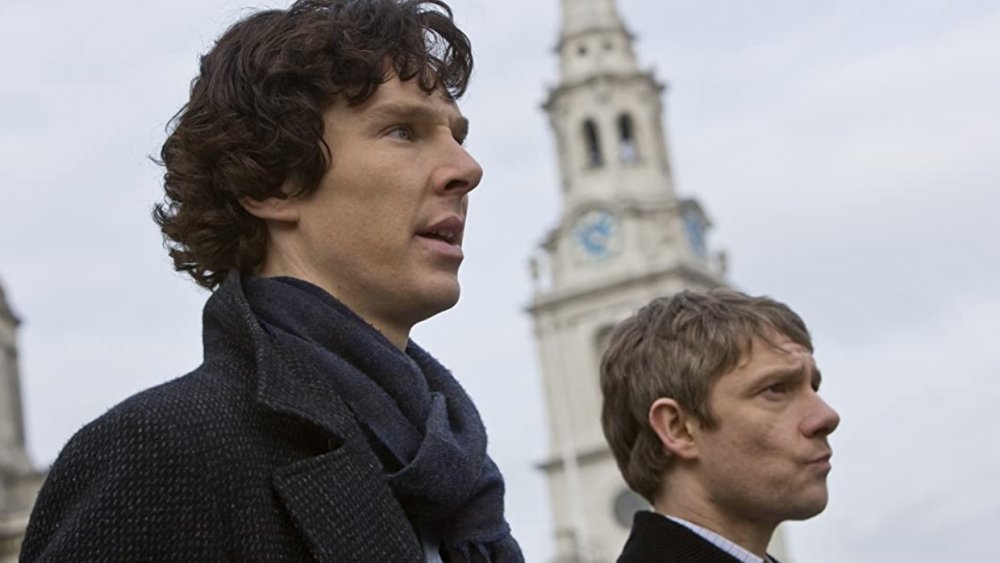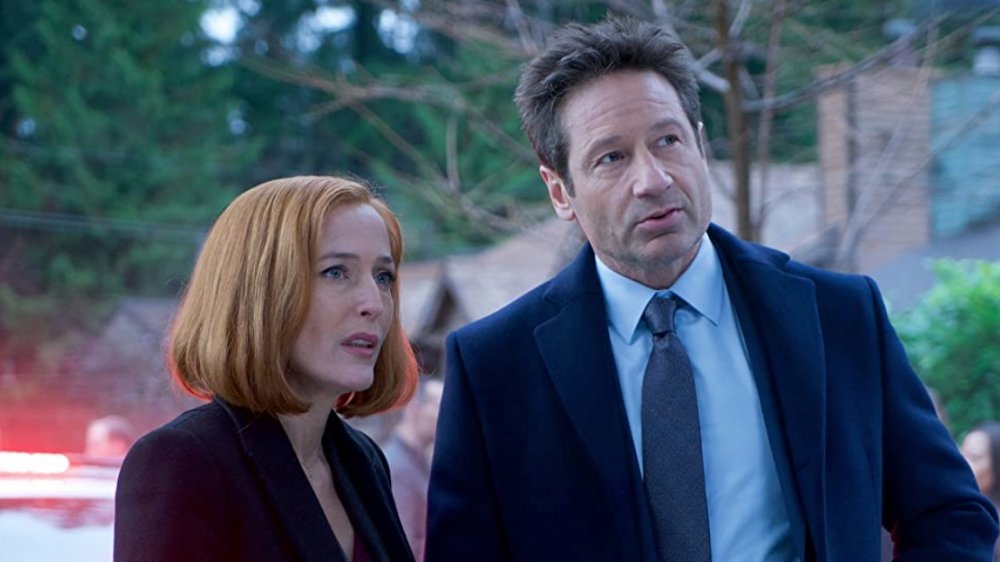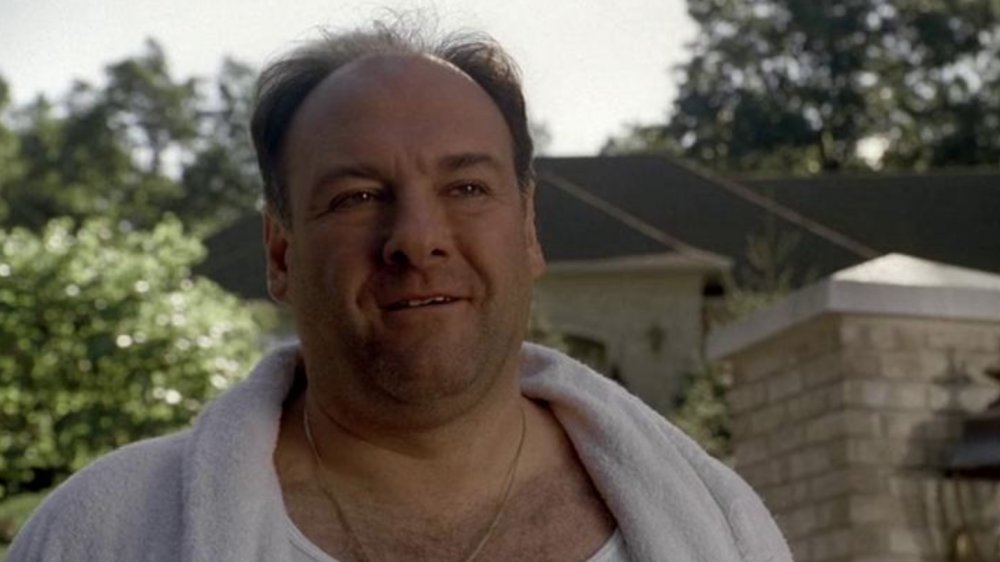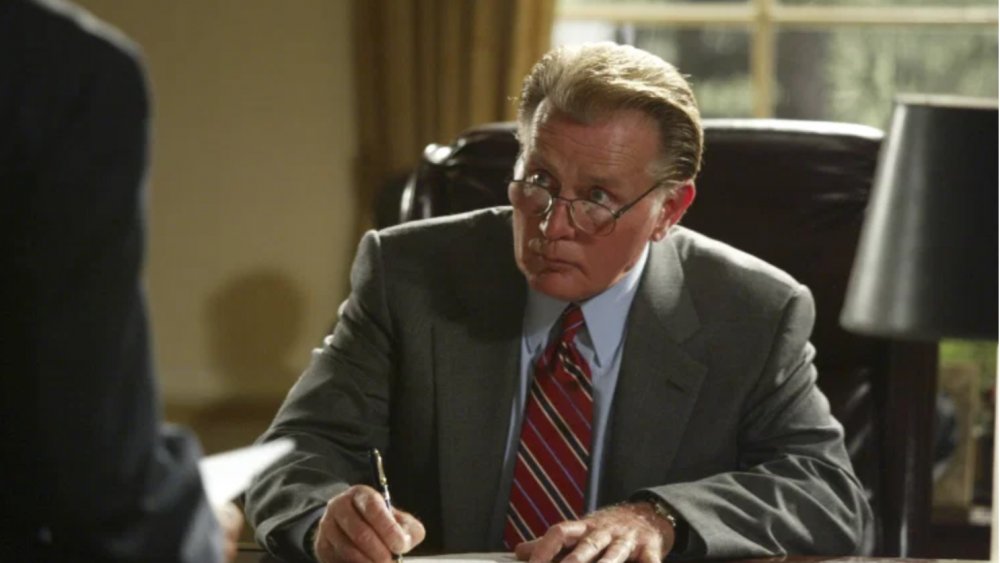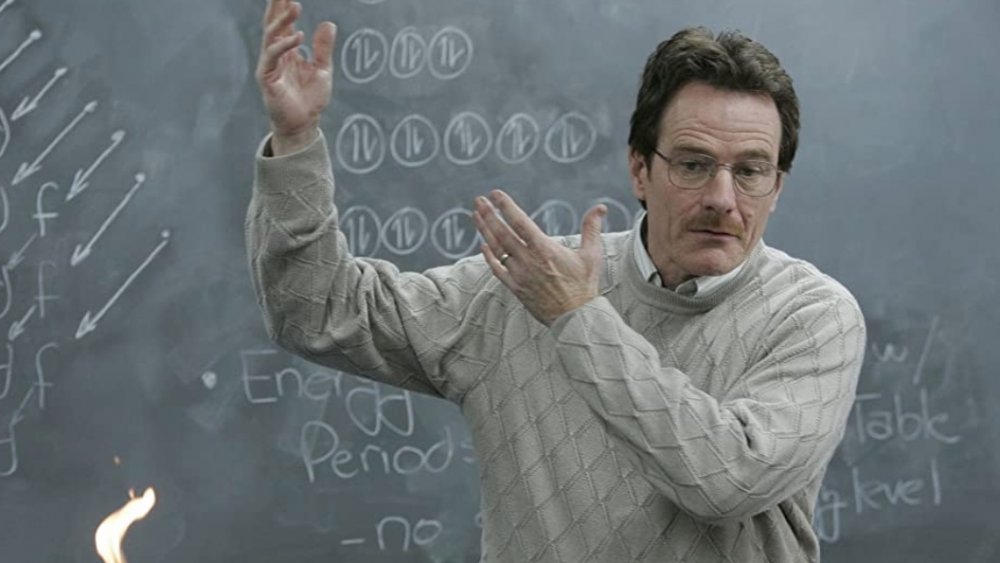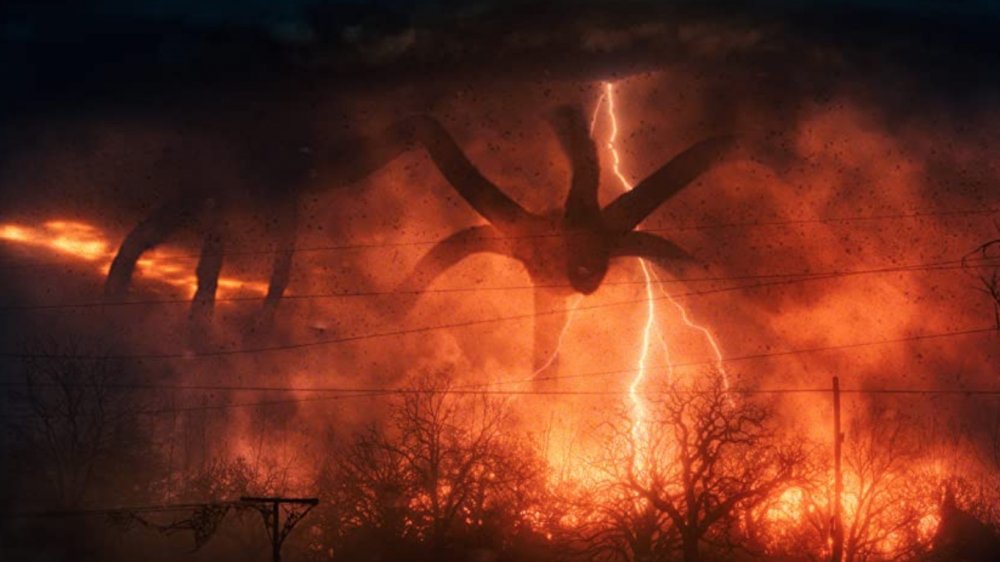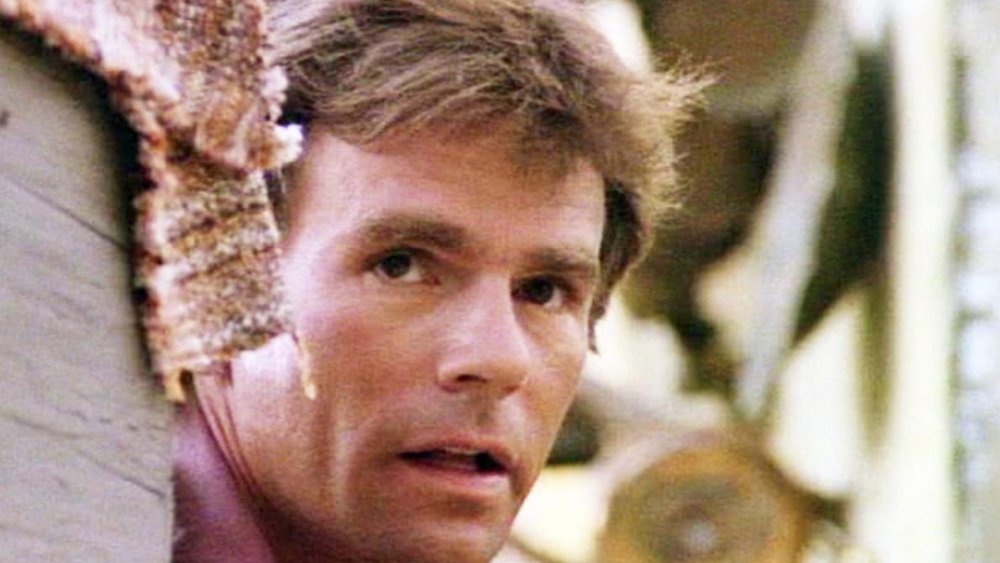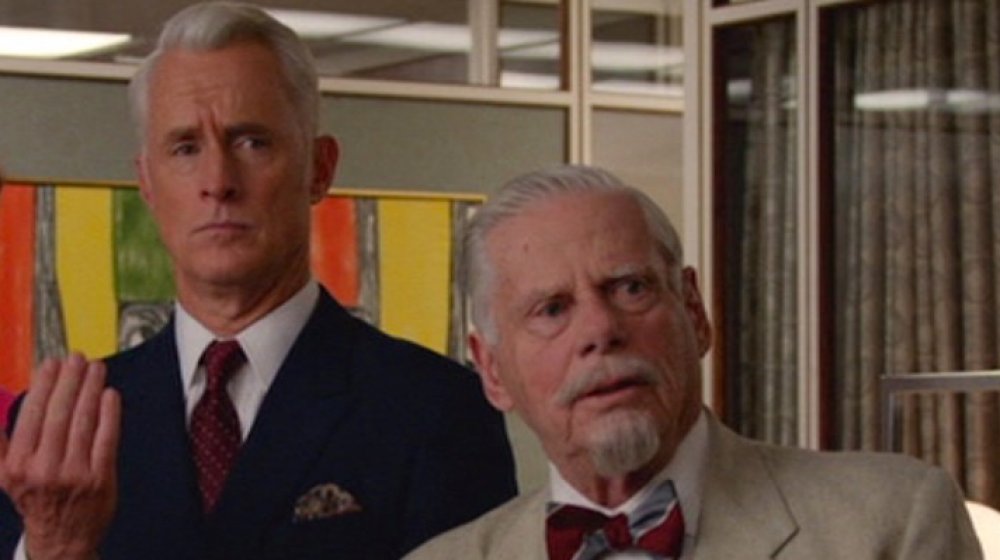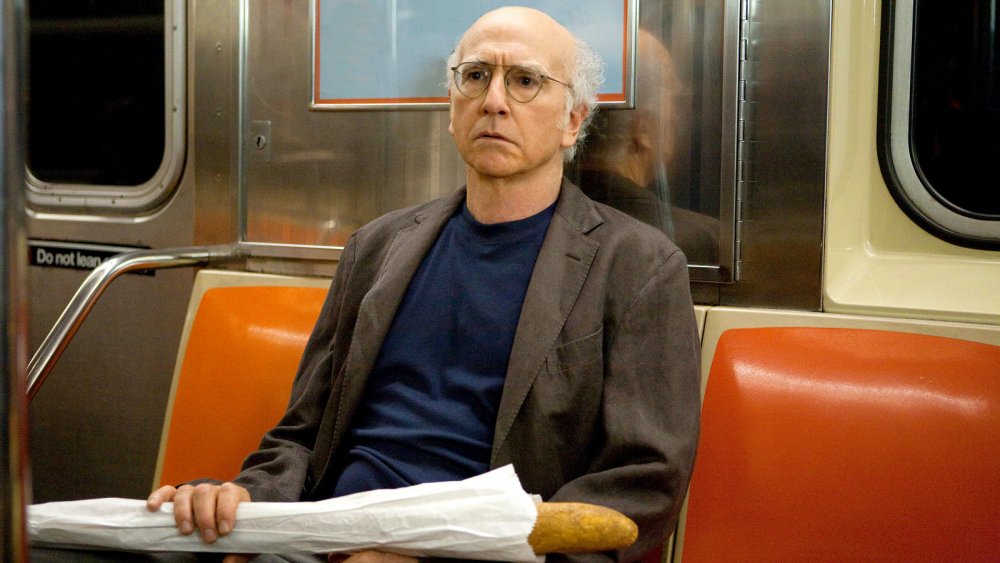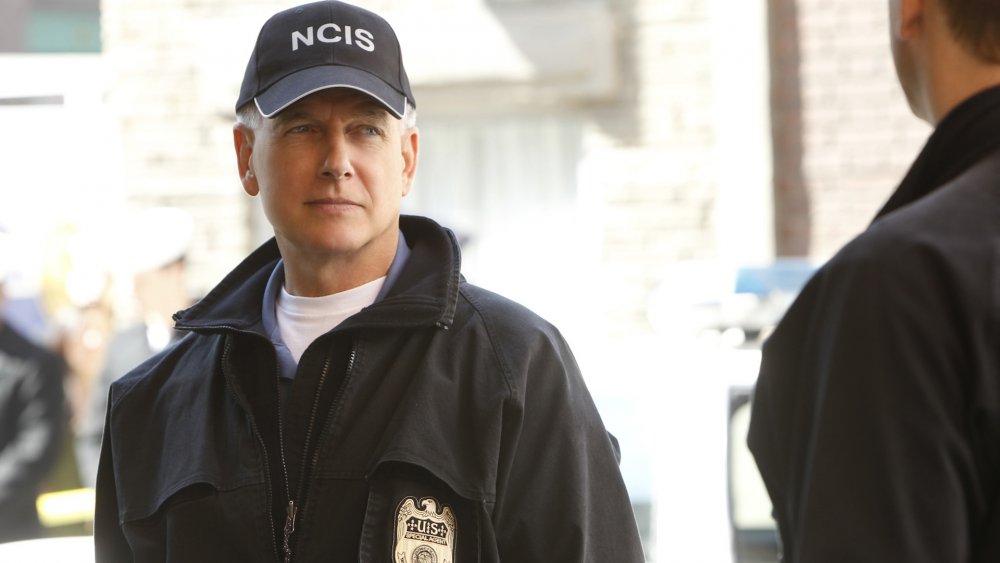TV Prequels We Actually Want To See
Prequels are a funny thing. We already know the ending, technically. After all, it's where the original film or TV show that the prequel is based on begins. We know that Will Graham will eventually catch Dr. Hannibal Lecter because that's how Red Dragon/Manhunter starts. We know Clark Kent will eventually fight for truth, justice, and the American way while wearing a red cape and blue spandex from space. And we know that prodigious whipper-snapper Sheldon Cooper will grow up to earn multiple doctorates but still be a generally immature, obnoxious person. Yet we still watch these prequels. Why?
Because there's something strangely satisfying about knowing where our favorite characters came from, even if we already know where they wind up. Also, let's be honest, it's way less risky for filmmakers to just create prequels for already popular characters than to, you know, come up with new stories that fickle audiences are very likely to reject. This is just as true with TV prequels as it is with movies. And while it can get out of hand, there are some TV prequels that we actually want to see. Whether these would-be TV shows are providing backstory to featured performers or letting us spend more time with our favorite supporting players, each has something to offer. What are they, and do you agree? Here are the TV prequels we actually want to see!
Frasier and Niles as kids is just what the doctor ordered
Frasier is one of the most interesting success stories in sitcom history. The character isn't a sarcastic everyman, a bumbling dad, or any of the other standard sitcom tropes. Instead, he's a highly educated, erudite, sophisticated psychiatrist who collects African art and can easily distinguish between expensive wines. Of course, it helps when your show is a sequel/spinoff to Cheers, one of the most beloved sitcoms of all time. Frasier ran for 11 seasons on NBC, with the March 13, 2004 series finale "Goodnight, Seattle" earning 25.2 million viewers, numbers you never see anymore in the modern streaming era outside of the NFL. So we know what happened to the character of Frasier, but how did he get there in the first place?
Well, we learned from Cheers and Frasier that Dr. Frasier Crane was raised in Seattle, Washington, by Detective Martin Crane, a blue-collar police officer, and Dr. Hester Crane, a research psychiatrist, who died from lung cancer before Frasier began. A show about a rough-around-the-edges cop and his intellectual, uptight psychiatrist wife who raise two remarkably bright youngsters in the 1950s and 1960s sounds tailor-made for the sitcom treatment, whether it's the classic three-camera setup with a live audience like Frasier or a single-cam like Young Sheldon. Either way, we'd watch it (and have our dictionary handy).
Will Smith's start in West Philadelphia would be a fresh TV prequel
"In West Philadelphia born and raised, on the playground was where I spent most of my days." You know the rest. The Fresh Prince of Bel-Air was one of the most beloved shows from the 1990s, the hit sitcom that launched Will Smith's journey from a lovable, "safe" hip hop artist to one of the most bankable movie stars of the '90s and 2000s. Or ever, really.
As a character, the Fresh Prince was a fish-out-of-water because he was a street smart, wise ass from West Philly thrust into the posh, tony enclave of Bel-Air in Los Angeles, where even breathing the air can wrack you up a four-figure bill. Hilarity ensued for six seasons until Smith called it quits so he could focus on saving the world from the scum of the universe. But by the time Will Smith (his character's name) arrives in Bel-Air, he's already a teenager, which provides plenty of prequel opportunities. We know why he came to California (we're trying really hard not to sing the lyrics again), but we'd love to know what else happened in Philadelphia besides that "one little fight." While they're at it, hopefully we can get a Fresh Prince sequel too.
Sherlock Holmes: Boy Genius
By our count, there have been roughly 12,397 screen versions of Sherlock Holmes, give or take a few thousand. Honestly, we'd love to see a prequel version of any of them, but this is an article about TV prequels, so we'll stick with the BBC's highly praised version from the 2010s. There's been one special and four seasons (or series, as they say across the pond) of Sherlock since 2010, for a total of 13 episodes. So the filmmakers certainly haven't been very prolific, have they?
We've learned that Benedict Cumberbatch's Sherlock is a "high-functioning sociopath" (we did our research), that his older brother, Mycroft, is a fellow super genius, and their parents are an average English couple who live in the London suburbs. Oh, and the Holmes' brothers also have a "secret" younger sister, Eurus, who possesses a transcendent intelligence surpassing that of her brothers and even that of Issac Newton, but she was institutionalized after burning down the family's home. Does this sound like a great show or what? The Holmes would be a dark comedy with a dash of mystery suspense just like Sherlock but about a trio of geniuses being raised by remarkably normal parents. Hopefully the BBC would be able to produce more than 13 episodes in ten years.
We want to believe an X-Files TV prequel would be awesome
The X-Files was one of the most popular dramas of the 1990s. The adventures of FBI agents Fox Mulder and Dana Scully were weekly viewing for millions, whether they took on a "monster of the week" creature or a corrupt government clandestinely aiding an alien race in the hostile takeover of the planet. (To be honest, we're not sure if The X-Files would be as popular if it premiered now as the truth is out there, and it's even stranger than fiction.) The X-Files ran for nine seasons from 1993 until 2002, and then again for tenth and eleventh seasons in 2016 and 2018. There were also two movies, The X-Files: Fight the Future in 1998 and The X-Files: I Want To Believe in 2008. With more than 200 hours of content available, does the world really need more The X-Files?
Yes, yes it does.
Start with Mulder, the son of a secret agent, whose sister was abducted by aliens, and who went on to graduate from the University of Oxford and the FBI Training Academy. Mulder worked in the Behavioral Sciences Unit and moved on to Violent Crimes before discovering the X-Files. A "Mulder meets Mindhunter" show? Yes, please! Or Dana Scully, who grew up in a tight-knit Catholic family, got a degree in physics, graduated from Medical School, and then joined the FBI. So like Clarice Starling, MD. Whatever the show is, we want to believe it would be awesome.
Making a Mobster
The tragic tale of Tony Soprano and his sordid clan of modern suburban mobsters is credited with launching the Golden Age of TV in the 2000s. The Sopranos ran for six critically acclaimed and commercially successful seasons from 1999 to 2007 before cutting to black, literally, to the sounds of Journey's "Don't Stop Believin'" in one of the most controversial season finales in TV history. Tony's fate was purposefully left open-ended, and you'll find passionate defenders in both the "Tony Lived" and "Tony Died" camps. Whatever happened to Tony, we want to see how he got there in the first place.
We know from The Sopranos that Tony grew up in 1960s New Jersey, the son of a capo (basically a colonel in the mafia hierarchy) named Johnny Soprano and his cruel, joyless housewife, Livia. Tony briefly attended college before deciding a life of crime was less expensive and more lucrative than a B.A. in Liberal Arts (good call). He and his crew gained notoriety by robbing a card game run by a prominent local hood, and he learned the ropes under the tutelage of Paulie "Walnuts," rising the ranks to become a capo himself by the time The Sopranos begins. Tony's rise is an epic crime saga in its own right. We're sure the "ending" won't be nearly as divisive, though if it ends with Journey's "Any Way You Want It" that'd be brilliant.
We want to see Josiah Bartlet's rise to power
The West Wing seems painfully naive in the modern era ... and to be honest, it seemed pretty naive when it originally ran in the first place. But hey, we need some wide-eyed optimism! The West Wing ran for seven seasons from 1999 to 2006, and it was mostly focused on the presidential administration of Josiah "Jed" Bartlet, played with paternal avuncular perfection by Martin Sheen. The namesake descendant of one of the original signers of the Declaration of Independence, Bartlet was born and raised in New Hampshire, and he's a lifelong, devout Catholic due to the influence of his mother, much to the chagrin of his abusive Protestant father.
Possessing a borderline genius-level aptitude, Bartlet forgoes the Ivy Leagues to attend the University of Notre Dame, and he eventually earns his Master's and Doctorate from the London School of Economics. He launches an esteemed academic career, including a tenureship at Dartmouth and a Nobel Prize in Economics. He also speaks Latin, English, and German, and he literally wrote the book on macroeconomics. In an allusion to FDR's polio, Bartlet also suffers from multiple sclerosis, which he tries to conceal. Bartlet began his political career with three terms in the U.S. House of Representatives for New Hampshire and two-terms as New Hampshire's governor. A TV prequel about Bartlett's rise could be the anti-House of Cards, showing that politics doesn't have to be a cutthroat, Machiavellian battleground ... at least not on TV.
Before Walter broke bad, he underachieved miserably
We already have a Breaking Bad prequel called Better Call Saul, and it's pretty great. As grateful as we are to have the tale of James Morgan McGill, aka Gene Takavic, aka Saul Goodman, we'd love to get more of the backstory on Walter White. Breaking Bad charts Walt's transition from meek, mild-mannered, high school chemistry teacher into one of the most diabolical and notorious drug dealers in the Southwest. What about going back in time to find out how an ambitious, brilliant chemist became, well, a meek, mild-mannered, high school chemistry teacher?
We know from Breaking Bad that Walt studied chemistry at the California Institute of Technology, where his research helped a team win a Nobel Prize. Following graduate school, Walt co-founded Gray Matter Technologies with his best friend before selling his financial interest for a measly $5,000. Gray Matter went on to make billions, largely based on Walt's work, while his former business partner married Walt's ex-girlfriend and former lab assistant. Ouch. Walt's sad journey from science rock star to chronic underachiever could be like Silicon Valley, even if the brilliant Bryan Cranston would be too old to play the part. Maybe call it Breaking Mediocre?
When did Things become Stranger?
Stranger Things has been one of the biggest success stories in the streaming wars since its 2016 debut on Netflix. Taking cues from Stephen King, Steven Spielberg, and John Carpenter, the show's magical mix of nostalgia and novelty, sci-fi, and horror has the creepy coziness of reading a Tales from The Crypt comic book with a flashlight underneath a blanket. Anybody else ever do that ... just us? Okay, moving on. Stranger Things' story is pretty simple. A small farm town Indiana is haunted by an unseen supernatural force from a malevolent parallel dimension known as "the Upside Down." But there's a lot more below the surface. Literally.
Our main characters first encounter the Upside Down in the early 1980s, but there's a mysterious government agency that's been monitoring it for decades. In fact, they've even built a device to open the interdimensional portal into the Upside Down because that's always a good idea. Meanwhile, the government has also been gathering children with special abilities, including the telekinetic, Eggo-loving Eleven. We'd love to find out how, when, and why the government first discovered the Upside Down. Similar to Stranger Things' take on the 1980s, a prequel set in the 1940s or 1950s could play off gee-whiz, Leave It To Beaver tropes of the era, mixed with the atomic horror genre (think Them! or The Beast from 20,000 Fathoms) that was so popular at the time.
Hollywood needs to MacGyver a TV prequel
You know your character has made an impact when his name becomes pop cultural nomenclature. People who've never even seen one single, solitary second of the 1985-1992 series or its 2016 reboot know what it means to "MacGyver" something. Basically, it's to take a bunch of disparate, seemingly unrelated parts to assemble something else entirely. So, using duct tape and chewing gum to build a deck. Well, we'd like to "MacGyver" a TV prequel based on this famous character.
From the show, we know that Angus MacGyver was raised in Minnesota, where he learned "backwoods common sense" and how to "be prepared" from his den mother in the Cub Scouts. Following his dad and grandmother's deaths, he was raised by his mother and maternal grandfather. He went to Western Tech where he studied chemistry and physics, served in the Vietnam War on the bomb-defusing team, and even worked as a "Hell Fighter," combating oil fires in Sumatra. So yeah, MacGyver gets around. We're not sure which of these shows we want to see the most — Lil' Mac learning the ropes as a Boy Scout, a college-aged Angus as a brilliant science student, or a young adult MacGyver defusing bombs and fighting fires. Honestly, we'd be stoked to see any of them. Maybe the filmmakers could use some twine and a rubber band to make a new series.
We'd be mad about a Sterling-Cooper prequel
Mad Men was anchored by Jon Hamm's sublime starring role as the ice cold Don Draper, aka Dick Whitman, who spent his formative years in a rural Pennsylvania whorehouse before stealing his fellow soldier's identity after going AWOL in the Korean War. We know quite a bit about Draper, but we'd love to see more of the backstory of his employers turned business partners, Roger Sterling and Bertram "Bert" Cooper.
Sterling is the smart-alecky, skirt-chasing, cocktail-slurping senior account executive and partner, played to scene-stealing perfection by John Slattery. Sterling served in the Navy during World War II, and he returned home to be groomed by his father to take the reins at his New York advertising firm, Sterling-Cooper. Bert Cooper was Roger's dad's partner, and he knew Roger since he was a boy. Mad Men doesn't provide much backstory for Cooper, so there's plenty of opportunity for storytelling. Was he a womanizing philanderer in his younger days? Or was he always more sober-minded and Zen? And why the obsession with Japanese culture?
We loved seeing Madison Avenue in the 1960s, and we would be equally eager for a 1930s-1950s advertising exposé, starting with Roger's dad teaching Cooper the ropes, with Cooper eventually taking young Roger under his wings. The show's title would be simple: Sterling-Cooper.
Lil' Larry would be pretty, pretty good
Curb Your Enthusiasm is a meta, comedic masterpiece. Larry David plays a facsimile of his real-life self, a highly successful, outrageously wealthy comedian whose propensity for cringe-inducing candor constantly gets him into trouble. If David is this much of a neurotic malcontent as a multi-millionaire, just imagine what he would've been like when he wasn't. David's life practically provides the storyline. Brooklyn born and raised, David did various odd jobs, including working with a bra wholesaler while pursuing his career in stand-up. After an unremarkable stint writing for Saturday Night Live, David and fellow comedian Jerry Seinfeld co-created Seinfeld, one of the most successful sitcoms of all time.
While pretty much every character on the show, even Jerry Seinfeld, has some of David's traits (self-centeredness and misanthropy), Jason Alexander's George Costanza was the fictional doppelgänger of Larry David, well, until we eventually got the real one with Curb Your Enthusiasm. Lil' Larry set during David's childhood in 1950s New York would be stupendous, though a Larry Sanders Show or 30 Rock-esque "behind-the-scenes" series on the making of Seinfeld would likewise be sublime. Who should play young Larry David? Old Larry David, of course! A wrinkly, gray-haired David as a younger version of himself would play into his irreverent persona.
We want to see Leroy Jethro Gibbs: American Sniper
NCIS (meaning Naval Criminal Investigative Service) is one of the most popular procedurals in broadcast TV history, with 17 seasons and around 400 episodes ... and counting. Not bad for a spin-off of JAG, which ran for a still impressive ten seasons but still only about half of NCIS run. There have also been two successful spin-offs, NCIS: Los Angeles and NCIS: New Orleans, proving TV fans just can't get enough of the series. So why not add another?
A big reason for the OG NCIS' success is the lead character, Mark Harmon's Leroy Jethro Gibbs. Gibbs left his small Pennsylvania hometown to join the Marines where he eventually served several tours of duty as a sniper. Gibbs retired after the Gulf War and joined the NCIS in 1991, and he's served there ever since. If you think Gibbs' war service is dramatic, you should hear about his romantic life! He's been married four times and divorced three times, as his first wife died. Gibbs is notorious for being hush-hush about his pre-NCIS life, so a TV prequel would be the perfect way to discover the background of this super private character.
